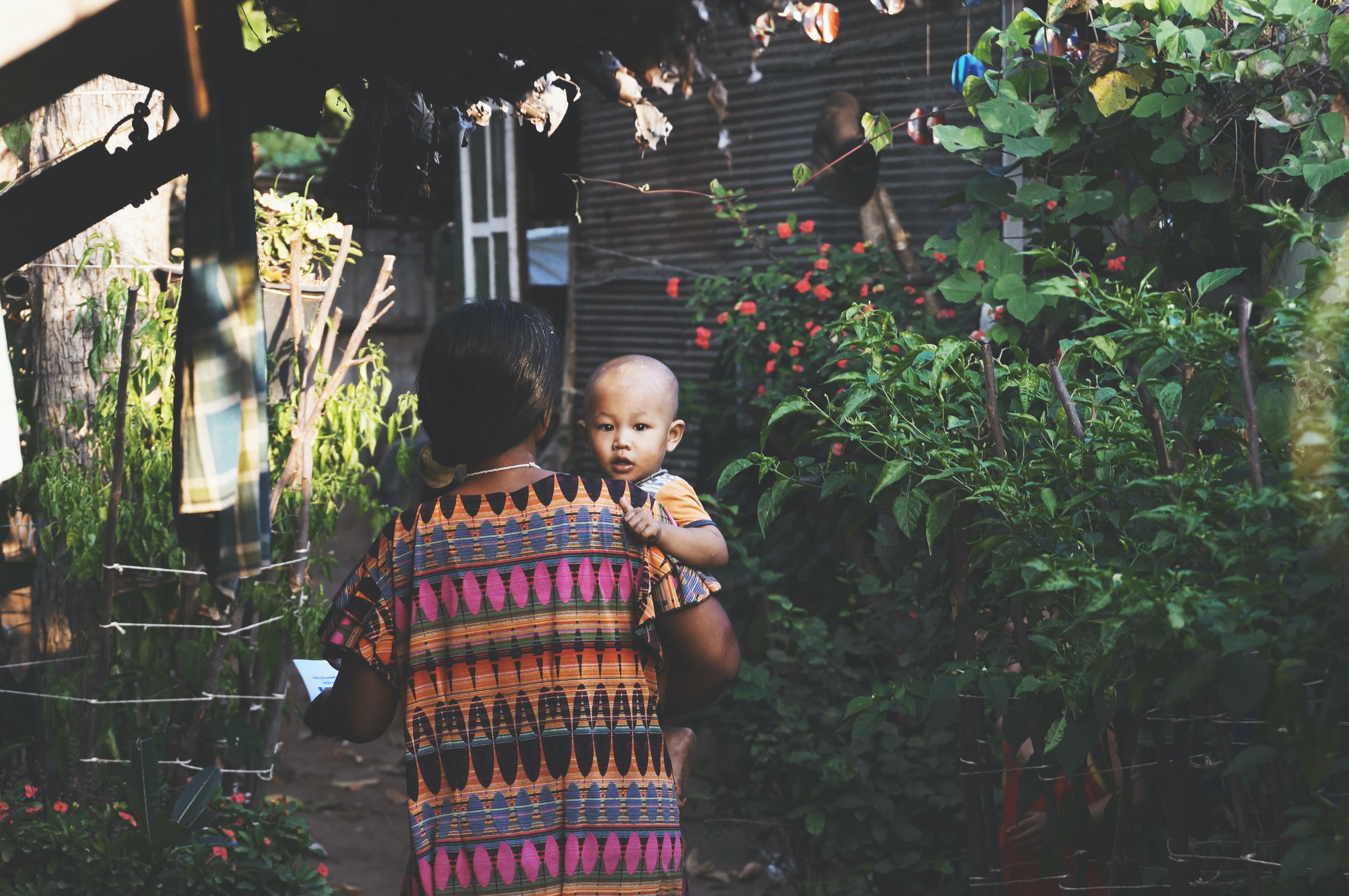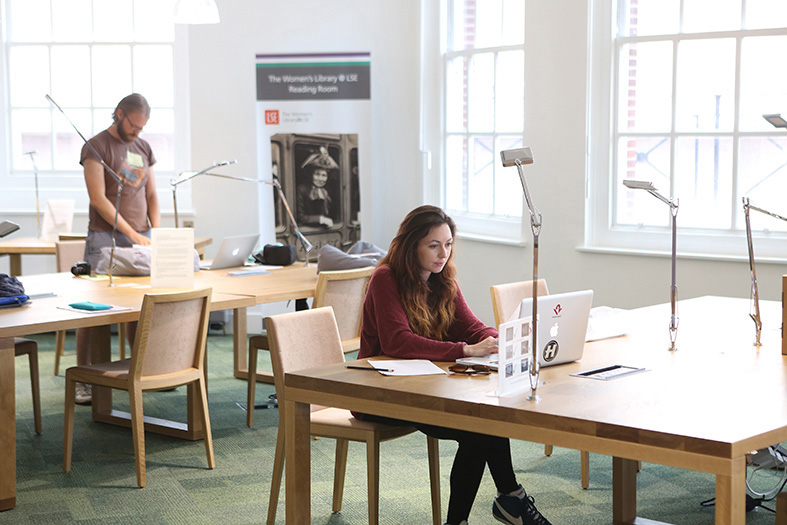In response to the COVID-19 crisis and rising injustices, LSE Alum, Vrinda Chopra proposes a lateral concept of social innovation through an approach based on ideas of unlearning, relearning and shared learning to deepen justice and solidarity in our development paradigms.
The moral dilemmas involved in the plight marginalized population groups as countries went into lockdown in response to COVID-19 ignited instances of social solidarity. Stories of compassionate efforts are abounding; people and communities, for example, are coming together to distribute basic needs and services, to volunteer for meeting deficits in the health infrastructure, and most recently to question deep-set issues of social inequalities like racism.
To realise the goal of a more just world there is need to build on the momentum of fragmented but important instances of social cohesion we are seeing today. In this article, I contend that social innovation based on deep listening and reflection can be a route re-imagining our development paradigms. The article proposes a lateral approach of social innovation based on unlearning, relearning and shared learning. These steps are not isolated, but rather are intertwined, interactive and overlapping with each other.
Un-learn
Globally development has been steadily moving away from top-down structures. Development is participatory in theory, but discourses of empowerment prevailing paradigms speak of, are often criticised as being empty of socio-political content. Sticking to static measurable outcomes to ‘judge’ social change reconstitutes practitioners as powerful in making those judgments, instead of activating the agency of people. It limits empowerment to ideas of giving ‘power to’, or ‘power with’, rather than engaging with socio-political structures for ‘power from within’.
Enterprise development efforts in South Africa, for instance, respond to policy mandates for radical economic transformation. The policy rewards corporate and enterprise efforts through a scorecard but has few quality benchmarks to understand the transformative potential of the enterprises. Collapsing transformation to a checklist, restricts the potential of progressive entities like Fair Trade. Across its supply chains, Fair Trade supports small-holders, however in South Africa, a lack of understanding of local dynamics led the institution to support hired-labour estates, inadvertently contributing to reestablishment of apartheid era inequities.
Deconstruction of subtle and enduring aspects of power require reflexivity in practitioners and policymakers. Attempting to shift systems to encourage empowered communities, requires long-term efforts while honing abilities to understand parts, see interconnections to drive innovation in our approaches for dealing with seemingly intractable problems. In leaning into and resolving tensions and difficulties, routes may emerge for new paradigms of development action.
One example from South Africa itself is of an organization born as a movement from within a marginalized township in the Western Cape called Rlabs. Led by ex-gang leaders and other community members, the organization leverages their inherent understanding their context to enable their fellow community members and peers to access opportunities for dignified livelihoods.
Re-learn
Efforts in deconstructing paradigms need to be accompanied with re-learning and evolving relevant ones that can facilitate social change. The paradigms of social innovation and its methodological tenets based on human centred design of listening, co-creation and learning is a possible direction. Social innovation transforms sub-optimal cognitive frames incrementally, unleashing a cascade of change by challenging foundational arrangements and assumptions held by individual and institutions alike.
An example in practice is the Work4Progress (W4P) India program of the la Caixa foundation and Development Alternatives. The program, recognizing issues of unemployment and underemployment in India, aimed to focus on enabling decent and meaningful livelihoods through enterprise development in underserved rural areas of Uttar Pradesh. Early evidence from the program suggests the value of empowering ecosystems, often simply by enhancing existing structures to respond to local needs, and to build a thriving rural economy.
Based on listening and dialogue with communities, experiments were jointly initiated with local entrepreneurs to build robust entrepreneurial ecosystems. State supported Common Service Centre’s (CSCs), for instance, in the program geography are evolving into local informational hubs. These hubs, called information kiosks, through digitally driven platforms facilitate access to government-run schemes, civil society resources, services like business planning and book-keeping, and in the future training programs especially for encouraging digital and financial literacy. The hubs are one part of an evolving network which includes a regional enterprise development coalition and a micro-credit facility among others. During the pandemic induced lockdown in India, these nodes in the local network were able to support their communities to access basic needs and services.

At a larger scale, another example is of the Mondragon cooperative which began as an endogenous response to poverty and unemployment in Basque Country. The self-sustaining industrial complex includes a constellation of institutions to address local needs – finance, education, technology, while being relevant at international scales. The model bridges the theoretical imaginary of cooperatives with its grounded and innovation driven approach.
Shared learning
Processes of unlearning and relearning need to be accompanied with a commitment to discussion with communities, peers and platforms, in short shared learning that activates feedback within practice. Through dialogue and interaction, the core of social innovation, development paradigms can recognize heterogenous and dynamic lives, livelihoods and aspirations. A dialectical approach, where opposing ideas, complexities and failures are confronted and resolved collectively, open up the possibilities for new experiments for social change.
An example is Project DEFY an innovative education model, building self-learning Nooks (borrowed from Nukkad’s in Hindi, a street corner were people gather) globally. The initiative believes in empowering children and people to take charge of their own learning and is advancing possibilities of quality education by leveraging the inherent strengths of learners and tapping into existing infrastructure like community schools. The model expresses that the promise for social change that social innovation entails does not sit in the civil society, philanthropy or even in individuals but in collaborative spaces across the development architecture.
Shared learning assists in building discipline by consistently asking us to think about the deprivations, inequities’ and unfreedoms that persist despite economic growth and are exacerbated through crises. Justice then, can be realized as an ongoing philosophical and collective project that imbues our practice rather than being relegated to the backs of our development toolkits. In sum, it brings us back to our humanness – embodied in our abilities as Amartya Sen put it, to understand, empathize, argue and concur. In returning to simple acts of listening, dialogue, discussion and collaboration, maybe power won’t reside with practitioners and policymakers. Agency will not be ‘given’ but activated and facilitated through networks of solidarity. Solidarity won’t be a mood of a time, but a norm by which we live. And the social opportunities presented would enable people to shape their ‘collective’ destinies.
Vrinda Chopra (@Vrindatalks) is an alumnus of University of Cambridge and the LSE. At present she is completing her PhD at the University of Cape Town on expressions of social enterprise and social innovation in emerging economies. She is also lead for learning and knowledge on the Work4Progress India Program at Development Alternatives, New Delhi.





